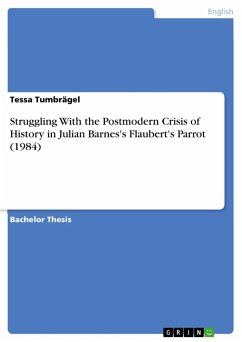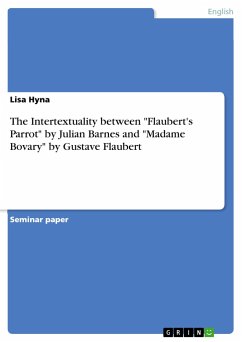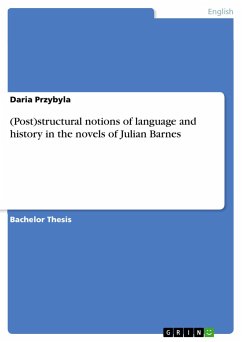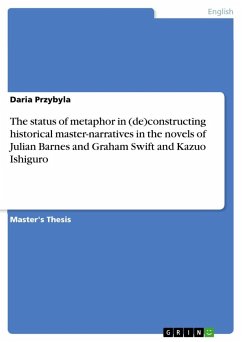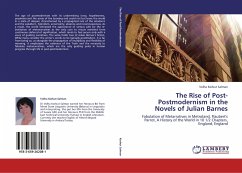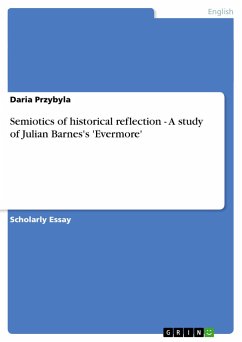
Does our Life have a Meaning if History doesn't? An Examination of Parenthesis in Julian Barnes Novel "A History of the World in 10,5 Chapters"

PAYBACK Punkte
0 °P sammeln!
Seminar paper from the year 1999 in the subject English Language and Literature Studies - Literature, grade: 1,0 (A), Humboldt-University of Berlin (Institute for Anglistics/American Studies), course: Contemporary British Fiction: Footnotes to History, language: English, abstract: "A History of the World in 10 ½ Chapters" by Julian Barnes is neither easy to understand nor to classify. Both problems, comprehensibility and classification, emerge from the same root: The book's complex structure. The 10 1/2 chapters seem to be autonomous episodes rather than parts of the same novel. Therefore, so...
Seminar paper from the year 1999 in the subject English Language and Literature Studies - Literature, grade: 1,0 (A), Humboldt-University of Berlin (Institute for Anglistics/American Studies), course: Contemporary British Fiction: Footnotes to History, language: English, abstract: "A History of the World in 10 ½ Chapters" by Julian Barnes is neither easy to understand nor to classify. Both problems, comprehensibility and classification, emerge from the same root: The book's complex structure. The 10 1/2 chapters seem to be autonomous episodes rather than parts of the same novel. Therefore, some critics have argued that it was rather 'a gathering of prose pieces, some fiction, others rather like essays' and no homogeneous piece of prose. On the other hand, they have also discovered elements which do connect the chapters. Therefore, one could conclude that if A History [...] does not fit into established patterns of the genre novel, it must be a post-modern novel, as the linking elements make it more than just a collection 'of prose pieces'.The other main problem, comprehensibility, is tightly connected with the issues structure and categorisation. Given that readers have discovered connecting elements and found that they add common meaning to the single chapters, they might still have unanswered questions. Does such a complicated structure imply a certain meaning that is beyond the content of the single stories and their common motifs?Many post-modern books do not provide explanations, but A History of the World in 10 ½ Chapters does. The 'half chapter', called 'Parenthesis', is the key to the novel. It contains clear, unambiguous statements about three major issues: history, love and truth. Although it does not explain the novel, it philosophies about its main topics and thus implies the significance of the book's literary patterns. I have chosen to examine 'Parenthesis' because it contains essential thoughts which make the book more accessible and are, above all, interesting in their own right. Consequently, I will consider the contents of the chapters as well as their linking elements only in regard to 'Parenthesis'. This also holds true for literary aspects such as genre-transgression and the established concept of 'historical novel', which will be part of the argument, but are not the object of this paper. Nevertheless, it is indispensable to introduce the whole novel, that is every chapter, in order to get an impression of the diversity as well as of common underlying issues, which are then reflected in 'Parenthesis'.




